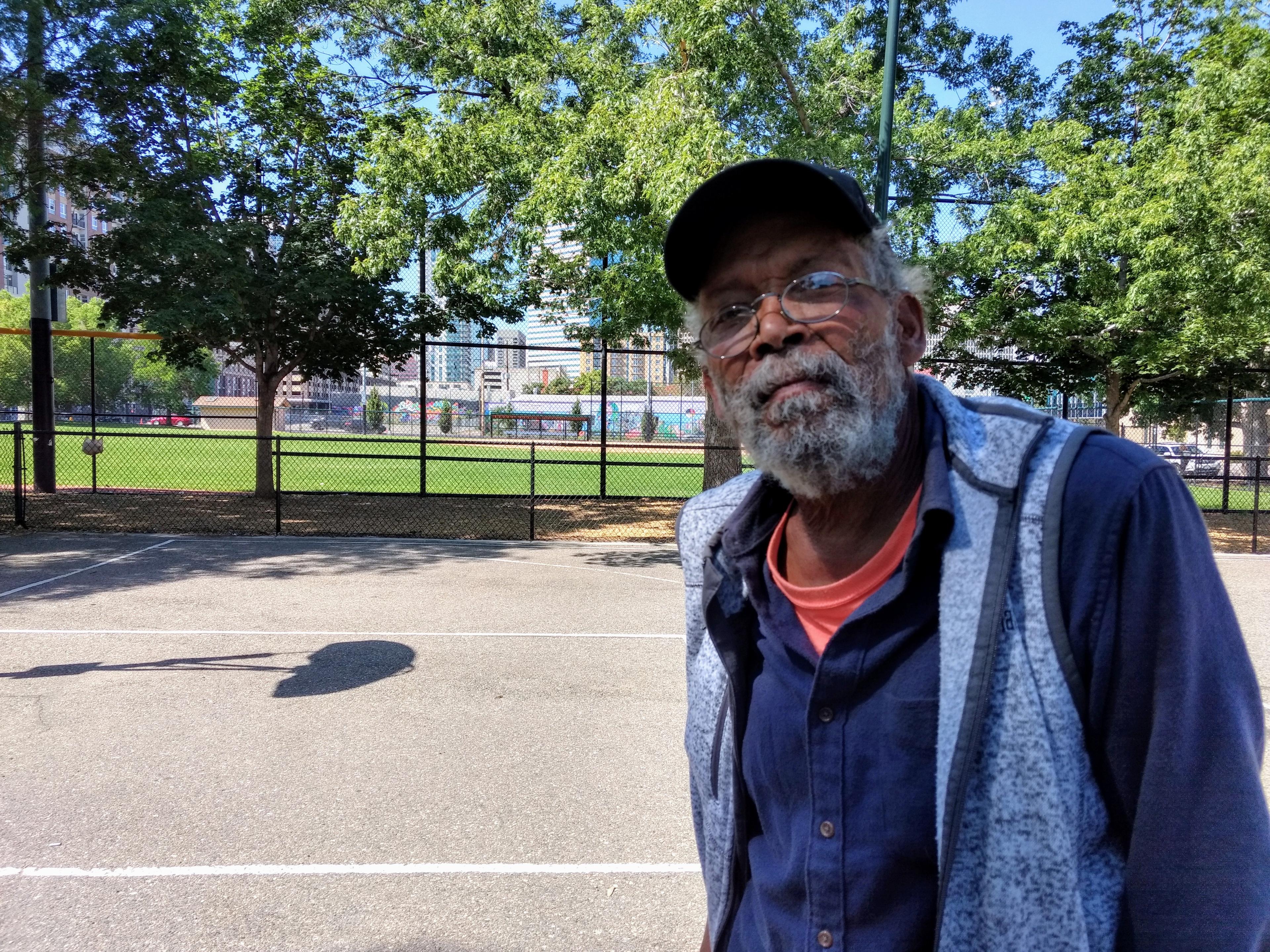If a patch of sidewalk on the east side of a utility substation at 24th and California is Jaquer Einar Simms's bedroom, Sonny Lawson Park is his parlor.
Late Sunday, park workers had arrived with black metal fencing they set up around a grassy area of the park. Signs in black and red on white posted on the new fencing informed passersby: "This area is closed to all entry for restoration and renovation." Monday, Simms, who says he's known around the Curtis Park neighborhood as Sgt. Simms because he served with the Marines in Vietnam, sat with a dozen other people living in homelessness. They worriedly discussed the possible impact of the park's temporary closure for maintenance. Where would they sit comfortably during the day? Would the portable toilet be taken away?
Simms broke away from the discussion when he noticed law enforcement and sanitation vehicles across the street. Using a cane, he walked over to a neat pile of belongings draped in a bright blue sleeping bag. He perched on his pile, saying he wanted to ensure it wasn't tossed into a trash truck. Once the Denver Police Homeless Outreach Unit team moved on, Simms returned to Sonny Lawson.
Parks & Recreation spokeswoman Cynthia Karvaski told Denverite her department had alerted the outreach unit ahead of the closure. Nick Grove and Jon Udland, the officers on the corner Monday, said they had come as part of a daily check of the area to oversee the disposal of items deemed abandoned and direct people on the street to shelter and other services.
When Chris Conner, director of the city agency Denver's Road Home that coordinates homelessness services, wanted to draw attention to the problem in Denver late last year, he chose Sonny Lawson for a light display. Conner had 3,445 bulbs strung on the park's baseball field backstop, each light representing a person counted as lacking permanent housing during metropolitan Denver's annual homelessness count in 2018.
Simms said he'd never expected to be in that number. He's been on the streets for 20 years, he said, roaming in Texas, Illinois and Florida. He came to Denver with a woman he met in Florida who had grown up in Montbello. She died recently, he said.
Nearly 70 and struggling with alcoholism and other illnesses, Simms said he couldn't stay in shelters. He'd been offered a top bunk at one, he said.
"I can't climb up to it," he said.
He said he was feeling increasingly unwelcome on the streets of Denver, which has a sporadically enforced ban on urban camping that largely affects people living in homelessness.
"I got a ticket for sleeping right there," Simms said, pointing to the Central Baptist Church on the east side of the park. He said he had a court appearance later this week.
A couple sat on a makeshift cardboard pad along a wall of the church dotted with "no trespassing signs." Blankets and pillows in bushes near the church were evidence others found rest there occasionally.
Simms gestured southwest of the park to a new high rise and a sign: "Luxury apartments coming soon."
"They want these folks that live in these buildings across the street, the modern, pretty ones, to have this park," he said.
Parks & Recreation spokeswoman Karvaski said the partial park closure was routine and would last eight to 12 weeks, time for new grass to grow and repairs to the irrigation system to be completed.
"It's pretty common," she said. "We do this all over the city. It's the only way we can restore the turf."
Paved areas, a playground, a dog park and a playground were not affected by the Sonny Lawson closure, she said. A drinking fountain and the portable toilet also remained accessible.













